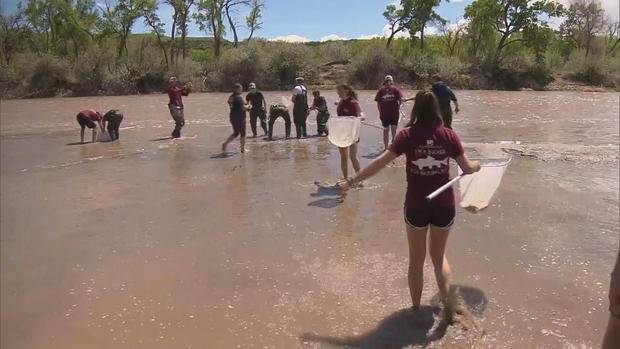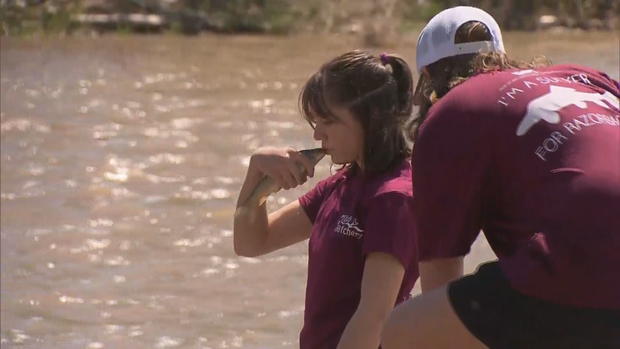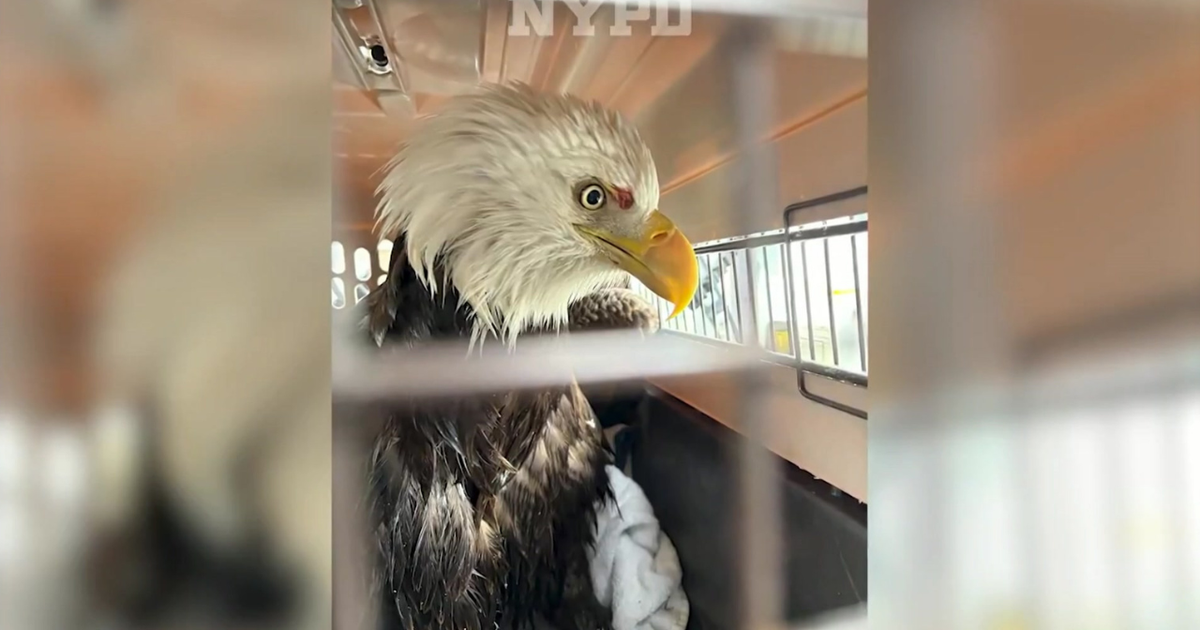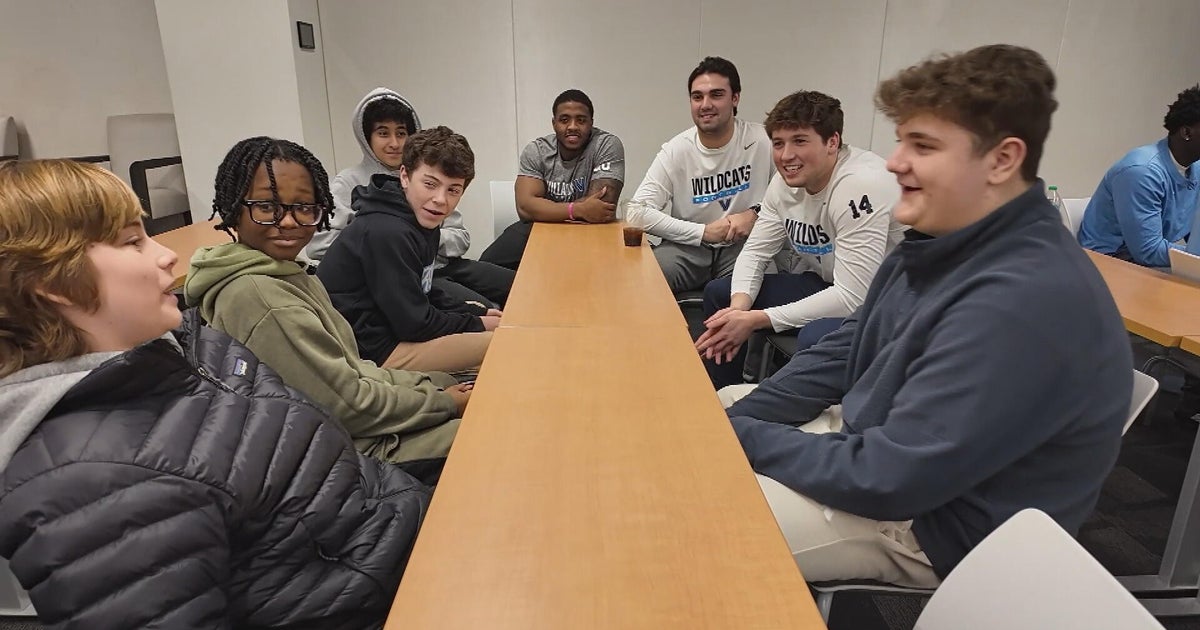Endangered Razorback Sucker Fish Released In Colorado River, With Kisses Goodbye From Students
PALISADE, Colo. (CBS4) Think of the bottom feeder sucker fish in a tank, lips suctioned to the glass, cleaning an aquarium nonstop. Now make that fish 3 to 4 feet long, possibly 30+ pounds, and waiting for a big kiss, and you have the Colorado Razorback Sucker.
The fish is native to the waters near Palisade on the Western Slope and have been for millions of years, but they are currently on the endangered species list. That's why Palisade High School has taken steps to raise up fish each year, and release them back into the waters.
"This is a way to educate our young folks that will be living in this area and in the Colorado basin of the importance of conserving these fish," explained Patrick Steele, science teacher at Palisade High School. "What they do for our ecosystem, how they help our agricultural community in terms of keeping water moving through our rivers so that we can use it for irrigation purposes and grow beautiful peaches, delicious cherries."
His students dropped 250 of the fish into the river Wednesday afternoon while dozens of students watched the release. Part of the ritual is to kiss the sucker fish before throwing it into the flowing, muddy waters of the Colorado.
"They get a little squirmy on your arm sometimes," joked student, Nicholas Campbell. "They will jump out at you, But it is really fun to just get your hands on 'em."
"Fish kissers, right here!" Brett Rozman said, pointing between his fellow students.
Fish Culturist with U.S. Fish and Wildlife Mike Gross is credited with starting the tradition of kissing the fish goodbye before they're released into the Colorado. He said he's proud of the attention the release has gotten, and is hopeful conservation efforts for the fish will continue far into the future.
"They are like little cleaners out there in the river so they will slurp up the slime, they will eat up the dead fish, they are little opportunistic guys out there constantly cleaning the river," Gross explained.
He also mentioned the fish represent an important part of the western slope's food pyramid, as they are prey for things like eagles and bears.
"There' a good chance that this next generation of kids can hopefully fix some of these environmental problems that have been going on in the Colorado river basin," Gross added, hopefully.









